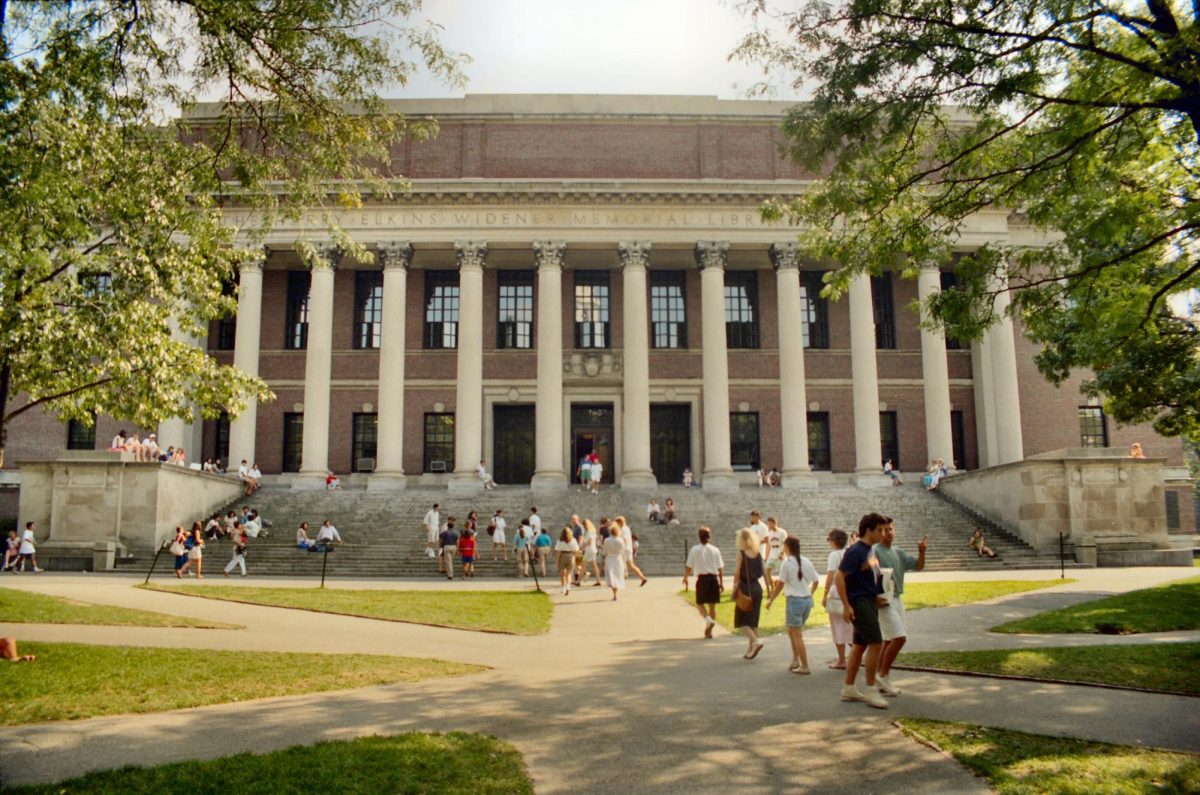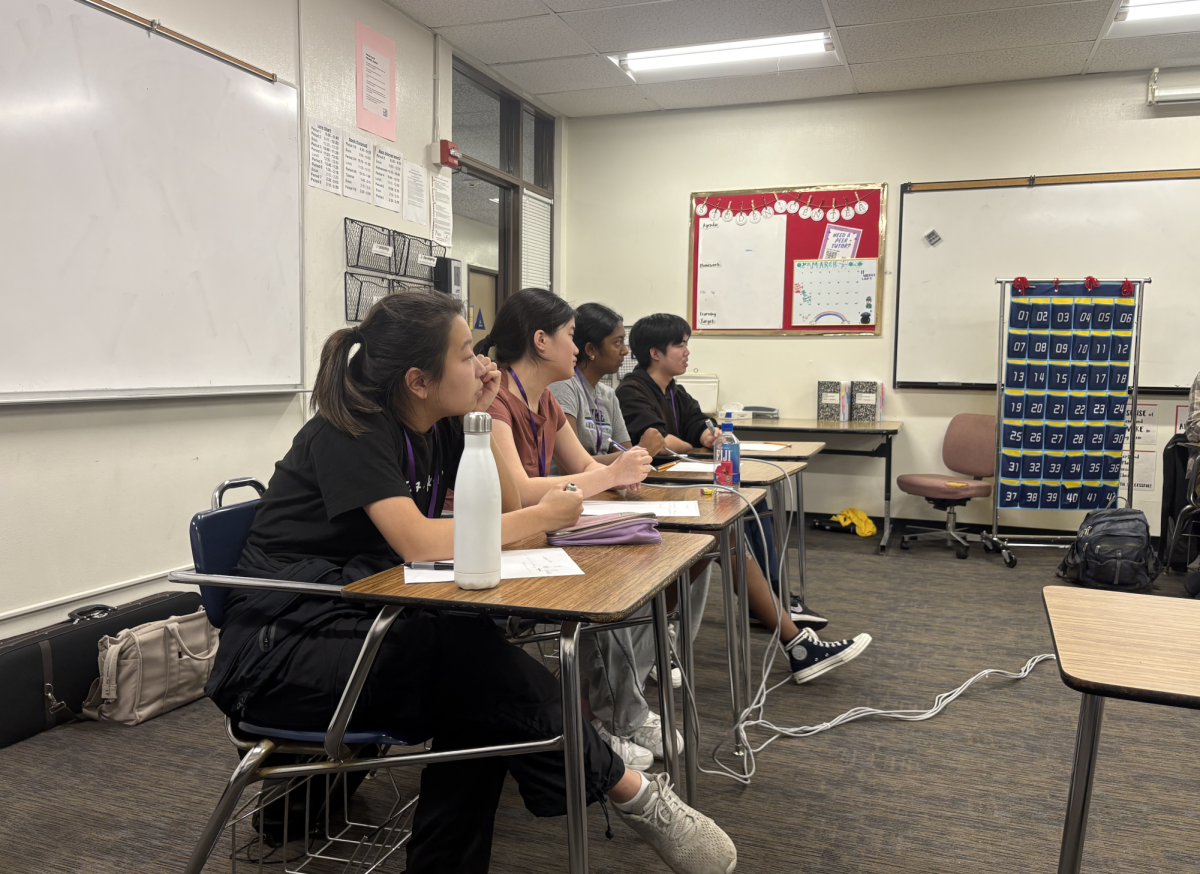As Sage Hill seniors begin the college application process this fall, they must navigate an admissions cycle reshaped by President Donald Trump’s recent policy changes. Since his inauguration, the Trump administration has targeted universities through funding freezes, visa restrictions, and admission crackdowns. His goal is to try to undo the disputed benefits that select students receive from previously-enforced diversity, equity, and inclusion policies. While the full extent of impact to Sage Hill’s student body remains unclear, Trump’s revisions to the college admission process have already created uncertainty among Sage Hill students planning to apply this fall.
Facing resistance in cooperation from universities, Trump continues to execute funding freezes and lawsuits against top institutions. The Trump administration “is devoted to [rooting] out antisemitism” and claims that elite universities are “ideological indoctrination,” the New York Times reports. However, when facing opposition, Trump has penalized schools, including the recent settlement of a $200 million fine with Columbia. Harvard, one of the most elite schools in the country, has refused to accept Trump’s proposals. The conflict has been further escalated as Harvard takes Trump’s administration to court. Even now, the ongoing battle with Harvard includes $2.6 billion of frozen research funds. Nevertheless, Boston’s federal judge has ruled this to be unconstitutional on Sept. 3, 2025 and is making efforts to urge the federal government to reinstate the funds, but this still remains to be seen as the administration intends to call for the ruling’s appeal.
“There’s uncertainty that higher education is currently dealing with in understanding what recent changes mean for their process,” Director of College Counseling Carolyn Blair said.
A Post-2023 Supreme Court ruling has banned universities from race-based admissions. Nonetheless, Trump’s administration is now policing “racial proxies” to create a race-neutral admission. More simply, race isn’t allowed to be mentioned in the admission process; rather, individual experiences are welcomed. Essays written on hardships, geography, or cross-cultural skills are prohibited if they discuss how race influenced an individual.
“I didn’t really talk about diversity too much. I feel like mentioning that could backfire now,” Senior Sarah Huang said.
New requirements by the Department of Justice (DOJ) ask for universities to submit detailed admissions data by race. If found that race is still a measure in the admission process, penalties will be enforced. Experts warn that this may further decrease enrollment for people of color.
Simultaneously, Trump’s enactment of new policies are more hostile towards international students and warns them to be more cautious of their behaviors. An recent policy is the revoke of the visas of students who were outspoken during pro-Palestinian protests or have penned editorials objecting to Israel’s military strikes in Gaza. Sage Hill students expressed sentiment of alteration to their essays because of potential uncertainty on how certain topics may be perceived.
“I’m tackling my application differently, less about staking a claim to what I believe and more about showing I can collaborate. I’d say that’s a positive,” senior Justin Kline said.
Trump administration officials demanded that Harvard stop enrolling foreign students. This may result in an estimation of 30-40% decline in new foreign enrollments for the coming year according to Forbes. Additionally, Columbia’s $221 million settlement required the university to decrease their “dependence” on international students. Sage Hill students have already seen fallout.
“My family friend in China isn’t even applying to U.S. colleges anymore. And that’s something I’ve heard from other [foreign] students too,” Huang said.
As the administration proceeds with its scrutiny of higher education, several universities have been accused of using early admissions to artificially inflate tuition. Schools use the word “binding” to scare students into committing earlier in the school year because withdrawal, even considering difficult financial status, could lead to severe consequences for the individual student and the school the student is affiliated with. Afraid to be targeted by these schools if students break this “promise,” many are forced to commit even while facing large sums of tuition. Trump’s administration claims that Early Decision inflates tuition, reduces financial aid competition and benefits wealthy families. In August, the Department of Justice filed an antitrust lawsuit against a slate of highly selective schools, including Cornell, Columbia, University of Pennsylvania, and Vanderbilt University. There still holds many questions of whether or not the fairness in admissions will uphold against scrutiny, and if ED will survive these legal challenges.
As the administration’s new policies push forward, students are set to encounter changes in FAFSA processing, which affects students’ approach to financial aid and affordability. Blair mentioned that “families who have filled out the FAFSA before will notice a difference in some terminology Expected Family Contribution (EFC) is now the Student Aid Index (SAI) and there have been changes to some eligibility, like Pell grants and Parent PLUS loan cap.”
Regarding financial aid and loans, the One Big Beautiful Bill Act (OBBBA) is planning to cut $307 billion from student loans and eliminate Grad PLUS loans starting July 2026. Grad PLUS loans helped students gain extra loans when financial aid alone isn’t enough to cover the cost of tuition. The new caps for most graduate students are $20,500 per year and $50,000 for med/law/dental students, including lifetime limits. Since Sept. 2025, the Department of Education has been significantly downsized, which could lead to expected federal aid processing delays. This reduction in access to loans may pose a concern for low-income and first-gen students. Kline said, “The current changes kind of favor kids in my demographic, students who can pay full tuition. While I know I’m in a good position, other kids aren’t as lucky.”
Blair suggests “families should get started on their FAFSA early, mind deadlines, and follow directions.”
Overall, the shift in policy does not pose drastic fundamental changes to Sage seniors’ application processes. However, the Trump administration’s recent strategy with grant freezes, lawsuits, foreign policy shifts and admissions scrutiny are creating uncertainty in the admissions sector. Multiple students expressed that they view this admission cycle like a “lottery” or “raffle.” Blair shares her recommendations for students. “Be your authentic self and share your story. And work with your college counselor, we’re here to help!”





